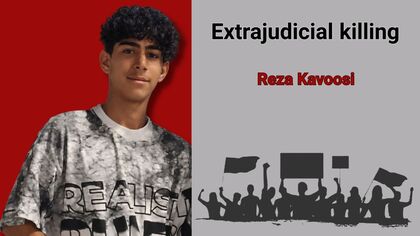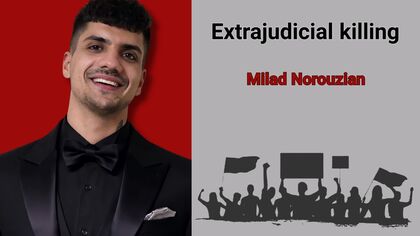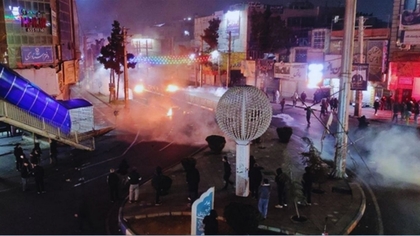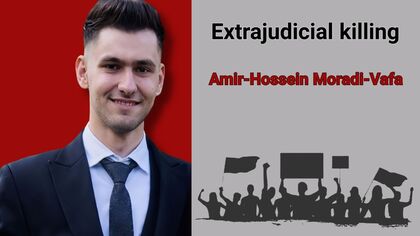Arab League suspends Syria
14:37 - 13 November 2011

The Arab League suspended Syria and called on its army to stop killing civilians in a surprise move on Saturday that some Western leaders said should prompt tougher international action against President Bashar al-Assad.
US President Barack Obama praised the League\'s decision and France said it was time for international bodies to take more action.
The Arab League will impose economic and political sanctions on Syria\'s government and has appealed to member states to withdraw their ambassadors, said Qatar\'s Prime Minister Sheikh Hamad bin Jassim al-Thani. It will also call a meeting of Syrian opposition parties, he said.
\"We were criticised for taking a long time but this was out of our concern for Syria,\" Sheikh Hamad told reporters at the League\'s headquarters in Cairo. \"We needed to have a majority to approve those decisions.\"
Syria\'s representative at the Arab League said the decision was \"not worth the ink it was written with.\"
The League\'s announcement was a sharp rebuke for Syria\'s leadership which sees itself as a champion of Arab nationalism.
Hopes among Western powers that Assad would be isolated by his Arab neighbours were repeatedly dashed until now. Some Arab leaders have been reluctant to turn against one of their peers given their own restive populations, Middle East diplomats say.
But Assad has pressed ahead with the crackdown on protesters against his rule despite an Arab peace plan brokered on November 2. The United Nations says more than 3,500 people have been killed in seven months of violence.
Syria blames armed groups for the violence and says 1,200 members of the security forces have been killed. Assad, from the minority Alawite community which has held power for four decades in mainly Muslim Syria, has said he has used legitimate means to confront a foreign conspiracy to sow sectarian strife.
Activists said six people were killed in Syria on Saturday.
\"We are calling all Syrian opposition parties to a meeting at the Arab League headquarters to agree a unified vision for the transitional period,\" said Sheikh Hamad, who is also Qatar\'s foreign minister. Qatar chairs the Arab League.
He said the suspension of Syria from the regional body would take effect on November 16, but did not detail the sanctions.
\"We ask the Arab Syrian Army to not be involved in the violent actions and killing of civilians,\" Sheikh Hamad said, quoting from an Arab League statement.
Syria\'s Arab League representative, Youssef Ahmed, said suspending Damascus violated the League\'s charter because it could only be done by consensus at a summit of Arab leaders.
It was clear that \"orders were issued to them from the United States and Europe to hasten a decision against Syria,\" Ahmed told Syrian state TV.
Syrian TV reported a demonstration outside the Qatar embassy in Damascus, while Assad\'s opponents hailed the League\'s new resolve.
\"This gives a lot of strength to the position of the Syrian National Council. This is now an Arab position,\" said Basma Qadmani, a member of the executive committee of the Syrian National Council, the most prominent opposition group.
Ad Feedback
Qadmani said that now that the Arab League had taken its decision \"we believe there is no justification for international reluctance\" to take tougher steps against Assad\'s government.
Obama praised the Arab League and said he would continue to pile pressure on the Syrian leadership.
\"These significant steps expose the increasing diplomatic isolation of a regime that has systematically violated human rights and repressed peaceful protests,\" he said in a statement.
German Foreign Minister Guido Westerwelle said the League\'s decision sent an important signal to those in the UN Security Council who had up to now prevented a clear resolution on Syria.
\"We will urge this to be seen as a chance for a change of heart,\" he said.
French Foreign Minister Alain Juppe said it was time for international bodies to take more action.
\"France appeals to the international community to hear the message sent by the Arab states, to take its responsibilities and to thus act without further delay,\" he said in a statement.
ECHOES OF LIBYA
Freezing Syria out of the 22-member League of Arab States carries extra symbolism in the wake of events in Libya, where Muammar Gaddafi was ousted and killed in a rebellion that benefited from NATO air support.
The NATO mission got UN Security Council approval after Libya was suspended by the Arab League.
\"This step introduces a possibility of foreign intervention and opens the door for engaging the international community in the case,\" said Nabil Abdel Fattah, a political analyst at the Al-Ahram Centre for Political and Strategic Studies in Cairo.
Sheikh Hamad held out the possibility that the League may ask the United Nations to help protect the rights of Syrians.
\"If the violence and killing doesn\'t stop, the Secretary General will call on international organisations dealing with human rights, including the United Nations,\" he said.
Since the Arab peace deal, Syrian security forces have killed more than 100 people in Homs, Human Rights Watch said on Friday.
As Arab foreign ministers gathered in Cairo, about 100 protesters shouted \"Bashar goes out, Syria is free\" and waved banners reading: \"The people want international protection.\"
\"We hope today\'s decisions will end the violence immediately and no more men, women or children will die in Syria,\" said Ibrahim Alshatay, 35, a Syrian protester.
The Arab League has appeared wrong-footed by rebellions that have unseated veteran strongmen in Tunisia, Egypt and Libya. Its about-turn on Syria follows months of wrangling and low-key shuttle diplomacy.
The League was split between states such as Saudi Arabia, that are hostile to Syria\'s ally Iran, and countries such as Yemen, struggling to quell widespread unrest, and Lebanon, where Syria\'s influence looms large.
Yemen and Lebanon opposed the suspension and Iraq abstained in the vote, Sheikh Hamad said.
Sources familiar with the League\'s deliberations said countries like Somalia and Mauritania had taken a cue from Sudan and backed the tougher stance on Syria, while Algeria was persuaded to switch camps under pressure from France.
Source: Reuters
US President Barack Obama praised the League\'s decision and France said it was time for international bodies to take more action.
The Arab League will impose economic and political sanctions on Syria\'s government and has appealed to member states to withdraw their ambassadors, said Qatar\'s Prime Minister Sheikh Hamad bin Jassim al-Thani. It will also call a meeting of Syrian opposition parties, he said.
\"We were criticised for taking a long time but this was out of our concern for Syria,\" Sheikh Hamad told reporters at the League\'s headquarters in Cairo. \"We needed to have a majority to approve those decisions.\"
Syria\'s representative at the Arab League said the decision was \"not worth the ink it was written with.\"
The League\'s announcement was a sharp rebuke for Syria\'s leadership which sees itself as a champion of Arab nationalism.
Hopes among Western powers that Assad would be isolated by his Arab neighbours were repeatedly dashed until now. Some Arab leaders have been reluctant to turn against one of their peers given their own restive populations, Middle East diplomats say.
But Assad has pressed ahead with the crackdown on protesters against his rule despite an Arab peace plan brokered on November 2. The United Nations says more than 3,500 people have been killed in seven months of violence.
Syria blames armed groups for the violence and says 1,200 members of the security forces have been killed. Assad, from the minority Alawite community which has held power for four decades in mainly Muslim Syria, has said he has used legitimate means to confront a foreign conspiracy to sow sectarian strife.
Activists said six people were killed in Syria on Saturday.
\"We are calling all Syrian opposition parties to a meeting at the Arab League headquarters to agree a unified vision for the transitional period,\" said Sheikh Hamad, who is also Qatar\'s foreign minister. Qatar chairs the Arab League.
He said the suspension of Syria from the regional body would take effect on November 16, but did not detail the sanctions.
\"We ask the Arab Syrian Army to not be involved in the violent actions and killing of civilians,\" Sheikh Hamad said, quoting from an Arab League statement.
Syria\'s Arab League representative, Youssef Ahmed, said suspending Damascus violated the League\'s charter because it could only be done by consensus at a summit of Arab leaders.
It was clear that \"orders were issued to them from the United States and Europe to hasten a decision against Syria,\" Ahmed told Syrian state TV.
Syrian TV reported a demonstration outside the Qatar embassy in Damascus, while Assad\'s opponents hailed the League\'s new resolve.
\"This gives a lot of strength to the position of the Syrian National Council. This is now an Arab position,\" said Basma Qadmani, a member of the executive committee of the Syrian National Council, the most prominent opposition group.
Ad Feedback
Qadmani said that now that the Arab League had taken its decision \"we believe there is no justification for international reluctance\" to take tougher steps against Assad\'s government.
Obama praised the Arab League and said he would continue to pile pressure on the Syrian leadership.
\"These significant steps expose the increasing diplomatic isolation of a regime that has systematically violated human rights and repressed peaceful protests,\" he said in a statement.
German Foreign Minister Guido Westerwelle said the League\'s decision sent an important signal to those in the UN Security Council who had up to now prevented a clear resolution on Syria.
\"We will urge this to be seen as a chance for a change of heart,\" he said.
French Foreign Minister Alain Juppe said it was time for international bodies to take more action.
\"France appeals to the international community to hear the message sent by the Arab states, to take its responsibilities and to thus act without further delay,\" he said in a statement.
ECHOES OF LIBYA
Freezing Syria out of the 22-member League of Arab States carries extra symbolism in the wake of events in Libya, where Muammar Gaddafi was ousted and killed in a rebellion that benefited from NATO air support.
The NATO mission got UN Security Council approval after Libya was suspended by the Arab League.
\"This step introduces a possibility of foreign intervention and opens the door for engaging the international community in the case,\" said Nabil Abdel Fattah, a political analyst at the Al-Ahram Centre for Political and Strategic Studies in Cairo.
Sheikh Hamad held out the possibility that the League may ask the United Nations to help protect the rights of Syrians.
\"If the violence and killing doesn\'t stop, the Secretary General will call on international organisations dealing with human rights, including the United Nations,\" he said.
Since the Arab peace deal, Syrian security forces have killed more than 100 people in Homs, Human Rights Watch said on Friday.
As Arab foreign ministers gathered in Cairo, about 100 protesters shouted \"Bashar goes out, Syria is free\" and waved banners reading: \"The people want international protection.\"
\"We hope today\'s decisions will end the violence immediately and no more men, women or children will die in Syria,\" said Ibrahim Alshatay, 35, a Syrian protester.
The Arab League has appeared wrong-footed by rebellions that have unseated veteran strongmen in Tunisia, Egypt and Libya. Its about-turn on Syria follows months of wrangling and low-key shuttle diplomacy.
The League was split between states such as Saudi Arabia, that are hostile to Syria\'s ally Iran, and countries such as Yemen, struggling to quell widespread unrest, and Lebanon, where Syria\'s influence looms large.
Yemen and Lebanon opposed the suspension and Iraq abstained in the vote, Sheikh Hamad said.
Sources familiar with the League\'s deliberations said countries like Somalia and Mauritania had taken a cue from Sudan and backed the tougher stance on Syria, while Algeria was persuaded to switch camps under pressure from France.
Source: Reuters



